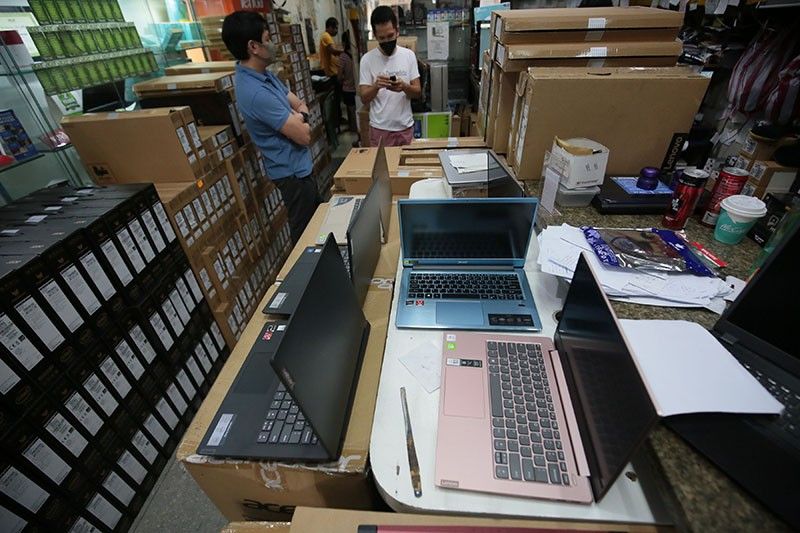Commentary: Digital infrastructure to bridge divide

It is interesting how deeply infused technology is with shifts in Philippine political and social landscapes. In 1986, Radio Veritas’ broadcast played a pivotal role in gathering protesters on EDSA and bringing an end to the Marcos dictatorship. In 2001, it was text brigades that gathered people on EDSA to rally against graft and corruption.
Nowadays, with 73 million Filipinos on the internet, some believe that, this time around, it will be social media that will launch a movement against authoritarianism and corruption in government. However, it is the “dark force” of heavily funded troll armies that seem to be dominating social media and shaping the political landscape through ground-breaking and impressively effective online campaigns.
Regardless of where you stand politically, one thing is undeniable: the internet and social media are powerful tools with the capacity to shape our politics, society and our daily lives.
The value of social media and the internet was only further highlighted by the coronavirus pandemic that forced people, businesses and politics online. Out of necessity, industries shifted to work-from-home setups or e-commerce solutions to keep business rolling during the lockdown.
As individuals, we turned to our Facebook feeds and Whatsapp groups for news and updates on the fight against COVID-19. We have also used social media to voice political sentiment, successfully pushing legislators to remove dangerous provisions from the Bayanihan to Heal as One law and despite social distancing rules, we’ve been able to organize a “Grand Mañanita” Independence Day protest against the controversial Anti-Terrorism bill.
Moreover, without the internet, we’d probably have as many cases of cabin fever as we do COVID-19 after being cooped up indoors for what is now being dubbed one of the world’s longest and toughest coronavirus lockdowns.
However, while the pandemic has highlighted the digital dividends, or the benefits that access to technology brings, it has also made apparent the pitfalls of having unequal access to the internet, both geographically and socio-economically.
These pitfalls perhaps are most apparent when it comes to education.
The Department of Education has already announced that it is shifting to online classes and distance learning for the next school year. However, the digital divide or the gap in access to technology leaves a lot of poorer students, who neither have the devices nor means to access the internet out of the loop. And what about those students that live in areas that are underserved or unserved by internet service providers (ISPs)? How can they be assured of receiving the same quality of education?
Clearly, the pandemic has fast-tracked the already pressing need to bridge this digital divide. The first step to doing so is by strengthening and expanding the country’s digital infrastructure, such as the fiber optic cable networks that transport data packets across the internet or the cell towers that beam 3G and 4G signals to our smartphones.
Expanding digital infrastructure is key to ensuring that all Filipinos have the opportunity to access the internet’s digital dividends.
However, there are numerous barriers to expanding the country’s digital infrastructure. These include costly, cumbersome and oftentimes inconsistent local government policies, outdated regulatory policies and a lack of public sector investment.
Given the imperative to bridge the country’s digital divide, government and the private sector should work together to develop comprehensive national strategies and policies that prioritize and facilitate the rapid development and deployment of digital infrastructures throughout the country.
In part, this means reforming policies to create a friendlier environment for extensive digital infrastructure development.
For this reason, the Department of Information and Communications Technology Secretary Gregorio Honasan’s recently signed Circular No. 8, which includes new guidelines that encourage the fast construction of cell towers is a welcome development. One of the critical provisions of the circular is the setting of a seven-day maximum processing period for permits and clearances.
Hopefully, local government units comply with the shortened processing period, since reports show that it currently takes up to eight months to receive approval for all the permits needed to build a single cell tower.
In addition to breaking down bureaucratic barriers, government must also increase public investment in digital infrastructure. This is especially important if we want digital dividends to reach those who live in underserved and unserved parts of the country.
Because of the low population in these areas, it is not always realistic to rely on commercial ISPs to connect them, thus it is in these parts of the country that public investment into digital infrastructure is key.
So, like it has in the past, we find that technology is again deeply infused with the country’s latest shift, this time it is to a “new normal”. But unlike the radio broadcasts and text messages that were used to gather people on EDSA, the internet is not just a means to gather people, it is THE gathering.
For this reason, it is crucial that we prioritize our digital infrastructure to bridge the country’s socioeconomic divide. We must ensure that our all citizens can participate in this new normal and reap its digital dividends.
Paco Pangalangan is the executive director of think tank Stratbase ADR Institute.
- Latest






























